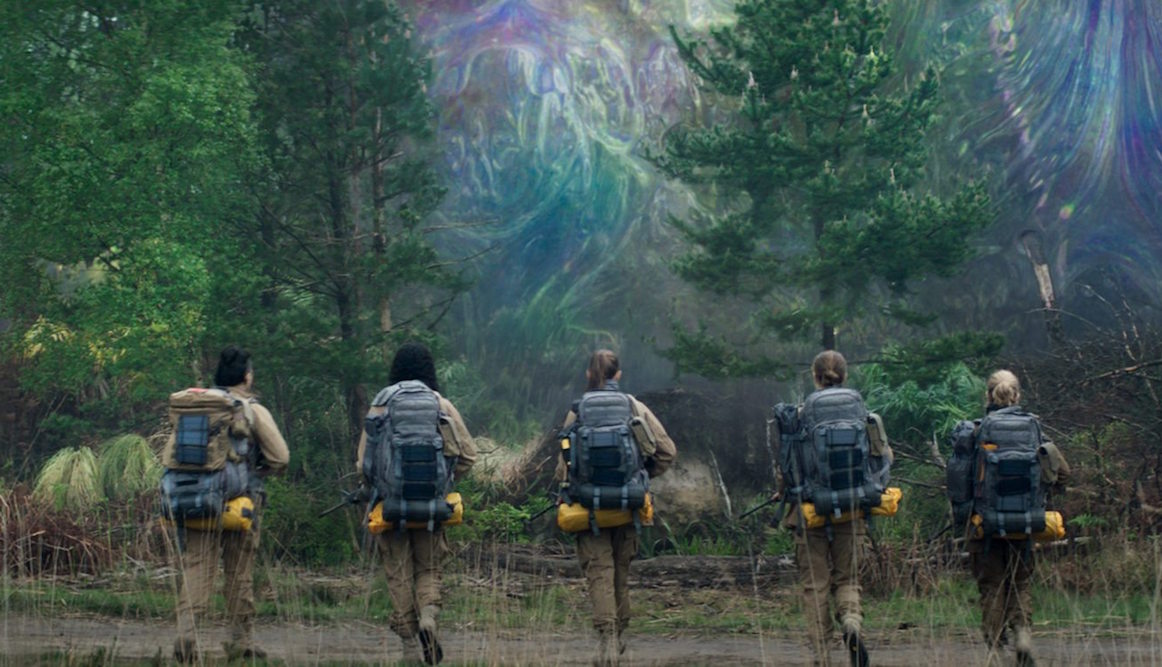You should see Annihilation in theaters. The second feature from Ex Machina director Alex Garland is a sensory experience as much as it is a narrative one. Starring Natalie Portman as a biologist who ventures into a quarantined area where a mysterious force is distorting reality in increasingly violent and psychedelic ways, it has everything you could want from a science fiction thriller: a terrifying monster, gorgeously alien fauna and flora, Cronenberg-quality body horror, bone-rattling synth music that sounds like the universe expanding when it’s played loudly enough. It’s the kind of movie that will lose something vital on its eventual journey to your living room. If you don’t believe me, just listen to the score on your laptop and try to understand why everyone who’s seen Annihilation already is freaking out about it. It sounds good enough on its own, but requires speakers with some punch behind them to achieve transcendence.
It’s a shame that most people around the world won’t get the chance to see it on the big-screen, at least until Annihilation’s seemingly inevitable resurrection as a midnight movie classic. After Ex Machina became a surprise indie hit in 2014, Paramount tapped Garland to write and adapt Annihilation from Jeff Vandermeer’s bestselling novel, as Garland’s first film for a major studio. Despite the generally risk-averse current Hollywood climate, it’s not unheard of for the big studios to go after auteurish young directors like this, and it can be profitable—look to the twin blockbusters of Ryan Coogler’s Black Panther and Creed for evidence of that. But at some point during Annihilation’s production, Paramount lost faith in Garland, selling the film’s international distribution rights to Netflix and releasing it in the U.S. with lackluster promotion, at a time that’s too late for entry in the 2017 Oscars and probably too early for serious contention in 2018. Everyone outside the U.S., Canada, and China—where Paramount retained distribution rights—will have to settle for watching Annihilation at home. Paramount handed a worse fate to multiple other recent films when it deemed them similarly noncommercial, selling the rights to Cloverfield: Paradox and Martin Scorsese’s The Irishman outright, without even a domestic theater release for either.
It could have been worse. Annihilation’s final act is a cosmic and nearly wordless sequence that begins when Portman’s character Lena reaches the lighthouse at the epicenter of “Area X,” which has earned the film hyperbolic but not entirely unjustified comparisons to 2001: A Space Odyssey. According to a behind-the-scenes story from the Hollywood Reporter, a Paramount backer named David Ellison was adamant that Garland change the ending to something more broadly accessible, but was fortunately blocked by producer Scott Rudin, who had final cut rights to the movie and took Garland’s side. Ellison’s doubts were apparently fueled by a test screening for an unreceptive audience, which led him to believe that the film was “too complicated” and “too intellectual” for the mainstream. Garland and Rudin’s refusal to cave ultimately led to the Netflix deal, THR reported.
Annihilation’s “intellectual” concerns provide the movie with some of its strongest thematic material. Just before things go irreparably wrong for Lena and her party of fellow scientist-explorers, she and a psychologist played with steely reserve by Jennifer Jason Leigh have a conversation about the nature of their trek. Lena calls it a “suicide mission,” but the psychologist thinks she’s being a tad overdramatic. Statistically, very few people commit suicide, she explains, but almost everyone “self-destructs” in some way, acting out dark impulses from the recesses of their psyche and laying waste to some previously serene pasture of their life, without even really wanting to. Self-destructing is what the Area X expedition is doing.
Lena sought out Area X because her military-man husband was the sole barely surviving member of an earlier mission there, and the psychologist’s monologue dovetails closely with what we learn about their relationship in a series of flashbacks. Lena is repeatedly shown having slow, unenthusiastic-looking sex with a colleague, despite her evidently blissful marriage, and it is intimated that her husband took on the assignment in part because he found out about the betrayal, which Lena clearly regrets. With her transgression and the psychologist’s insight in mind, Lena’s surreal journey can be read as a meditation on the terror of living inside our own unruly and desirous minds, filled with beasts that are unrecognizable even to their creators. As in the dystopian writing of J.G. Ballard, the vividly decomposing settings are also reflections of the character’s equally fractured inner state. Ellison reportedly wanted Lena rewritten to be more sympathetic, a decision that would rob the film of its most resonant emotional content.
Annihilation isn’t a perfect movie. Lena and the psychologist are by far the most believable members of a party whose other participants have one-note backstories that serve only to explain their acceptance of a mission that has killed nearly all of its previous takers. But its merits greatly outweigh its flaws, and there’s no obvious reason it couldn’t have reached the same success as Ex Machina, or even Arrival (which earned about $200 million worldwide for Paramount in 2016) if given the proper promotional push. Instead, Paramount’s doubts about the film became a self-fulfilling prophecy, and without studio support it grossed barely a quarter of its budget on opening weekend. It’s member of declining species of movie, with a midsized budget, star power, and blockbuster-level production value, but no Marvel or Transformers-sized audience built in. These sorts of movies are best experienced in theaters, but sadly it seems like we’ll be seeing fewer and fewer of them there.





